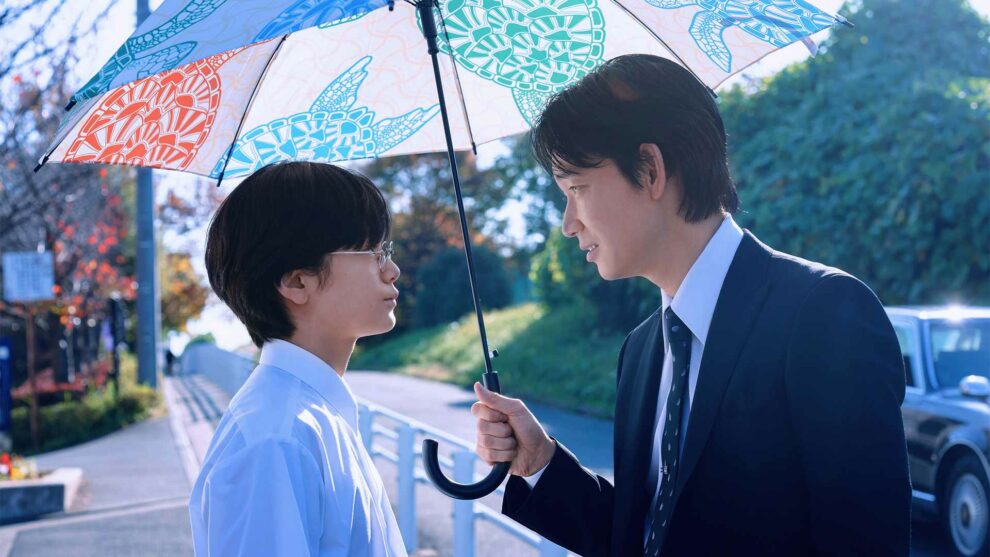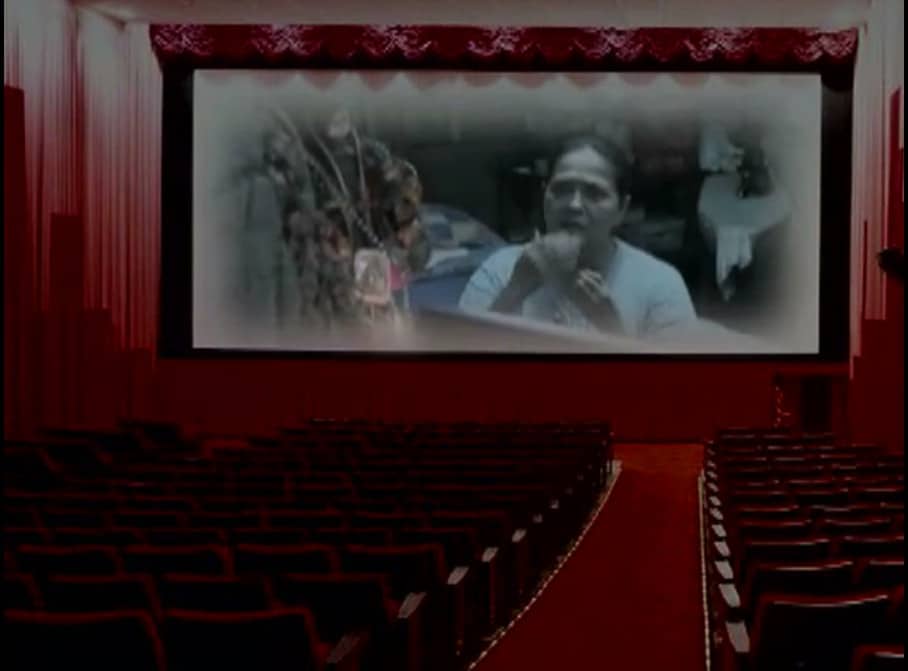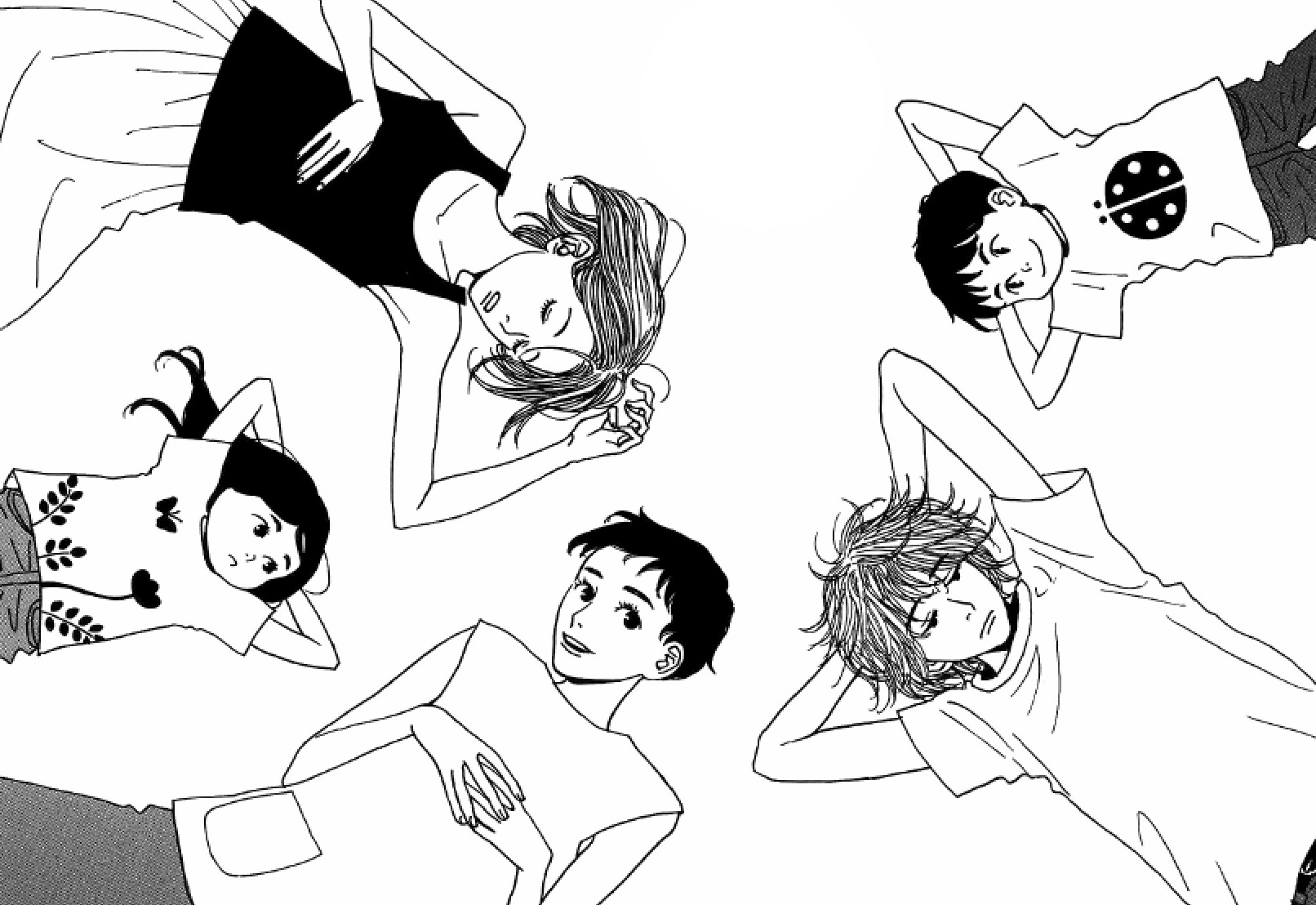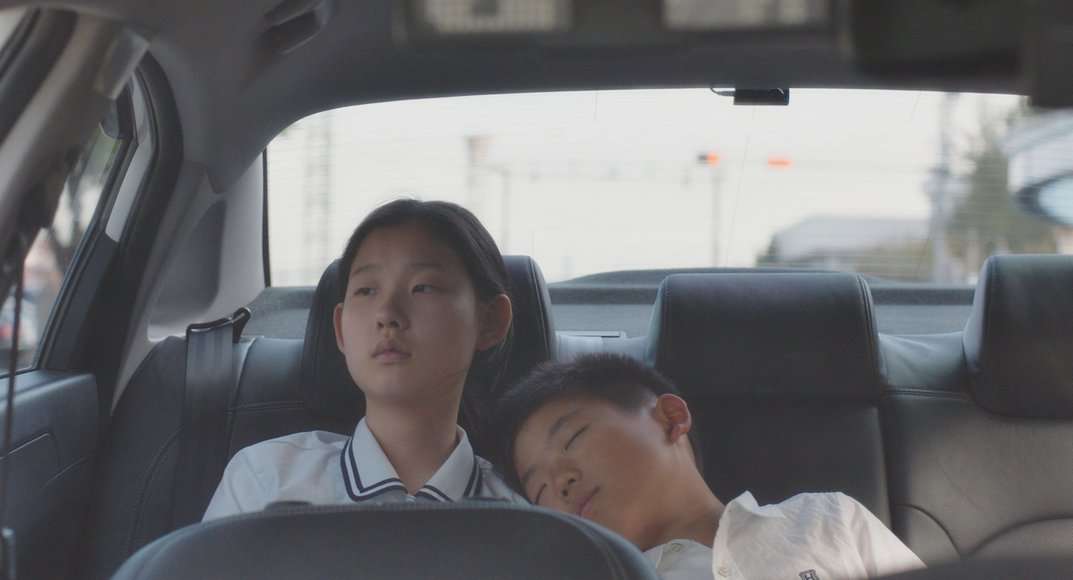For all the live-action manga/anime adaptations of popular properties, it is nice to see filmmakers give lesser-known works the cinematic treatment. Yama Wayama's manga series “Let's Go Karaoke!” while not on the same level of popularity as other comedic illustrated works, has garnered a positive reception in Japan and internationally. Surely, the strange yet humorous concept of the head of a high school choir giving singing lessons to a pitiful yakuza lieutenant could be solidly translated to film, especially in the hands of a talented filmmaker like Nobuhiro Yamashita, best known for his critically acclaimed feature “Linda Linda Linda.” Sadly, “Let's Go Karaoke!” is a movie that accomplishes the unfortunate feat of being both a lackluster comedy and a poorly conceived drama.
Let's Go Karaoke! is screening at Nippon Connection

One day, yakuza member Kyoji Narita is strolling through the rainy streets when he is drawn to the sound of singing from a nearby building. Upon entering, he happens upon a choir performance in session. Impressed, he meets the chorus leader, junior high school student Satomi Oka, and asks him to accompany him to karaoke to provide singing lessons. Initially weirded out, he reluctantly agrees. Kyoji requests the sincere yet brutally honest youth to help him improve his singing in preparation for his gang's upcoming karaoke competition. While roped into this, Satomi is dealing with his own insecurities, including his struggles with vocal range due to ongoing puberty and what lies ahead in his future path.
On the surface, “Let's Go Karaoke!” teases a promising set-up. The idea of a pitiful yakuza seeking singing lessons from a choir boy to prepare for a gang-related singing contest is funny. Additionally, the feature, like the source material, goes the extra mile and acknowledges that a significantly older man spending time with this underage teen is quite creepy. What forms between them is merely an unlikely friendship. Furthermore, the movie has positive themes surrounding the two vulnerable leads, outsiders trying to overcome their insecurities and push forward.
Check also this article
All these elements show promise for a fun, clever, heartwarming movie. Yet Akiko Nogi's screenplay and Nobuhiro Yamashita's direction fumble badly here, with character drama that relies on tired melodramatic cliches straight out of a bad J-drama and humor that is often unfunny, even frequently relying on continuous gags that quickly wear thin after a while, such as the intentional awful singing. One of the only handful of successful humor that does land is Satomi's occasionally amusing, straightforward, brutally honest remarks regarding the terrible singing he is forced to endure and critique. Furthermore, everything from how the conflicts are handled to how the characters interact feels painfully contrived. It's disappointing considering how well the director has done with character drama and humor in his previous works, such as “Linda Linda Linda.”
Despite two talented leads, Go Ayano and Jun Saito struggle to make the material salvageable. Their strange yin-yang dynamic is intended to be amusing, yet feels extremely phony. Ayano's Kyoji Narita is written to be likable. Yet, he's not a particularly fun character to follow, and his over-the-top antics as a mediocre singer and criminal with a soft side quickly become obnoxious to deal with, which perhaps was the point so viewers can empathize with Satomi Oka yet likely not in this way. Additionally, Saito doesn't fare much better here as Oka, a brutally honest youth dealing with personal insecurities, which are very real concepts yet feel hollow in narrative execution. Kazuki Kitamura appears in a supporting role as the yakuza head of Kyoji's gang. Yet, his talents are sadly wasted here in a dull part, and he was likely only cast for the image due to having a history of playing villains and tough guys throughout his career. Every other supporting player is either painfully forgettable or incredibly annoying.
Even in a lesser work like this, Nobuhiro Yamashita does not disappoint from a technical standpoint. “Let's Go Karaoke!” is a competently made movie, and cinematographer Katsumi Yanagijima gets the job done. There is little to say about Hiroko Sebu's music score here. Most of the singing within the movie is intentionally bad and played for laughs, yet it's a type of gag that quickly grows old. However, Jun Saito's passionate vocal performance at the end is genuinely commendable.
“Let's Go Karaoke!” is painfully unfunny and dramatically thin. Despite some initial amusement in the opening, the movie devolves into a tedious and frustrating viewing experience, only garnering a laugh or two in a nearly two-hour runtime that feels longer. Nobuhiro Yamashita is a great director, but this feature fails to stand as anything other than a bad comedy.













